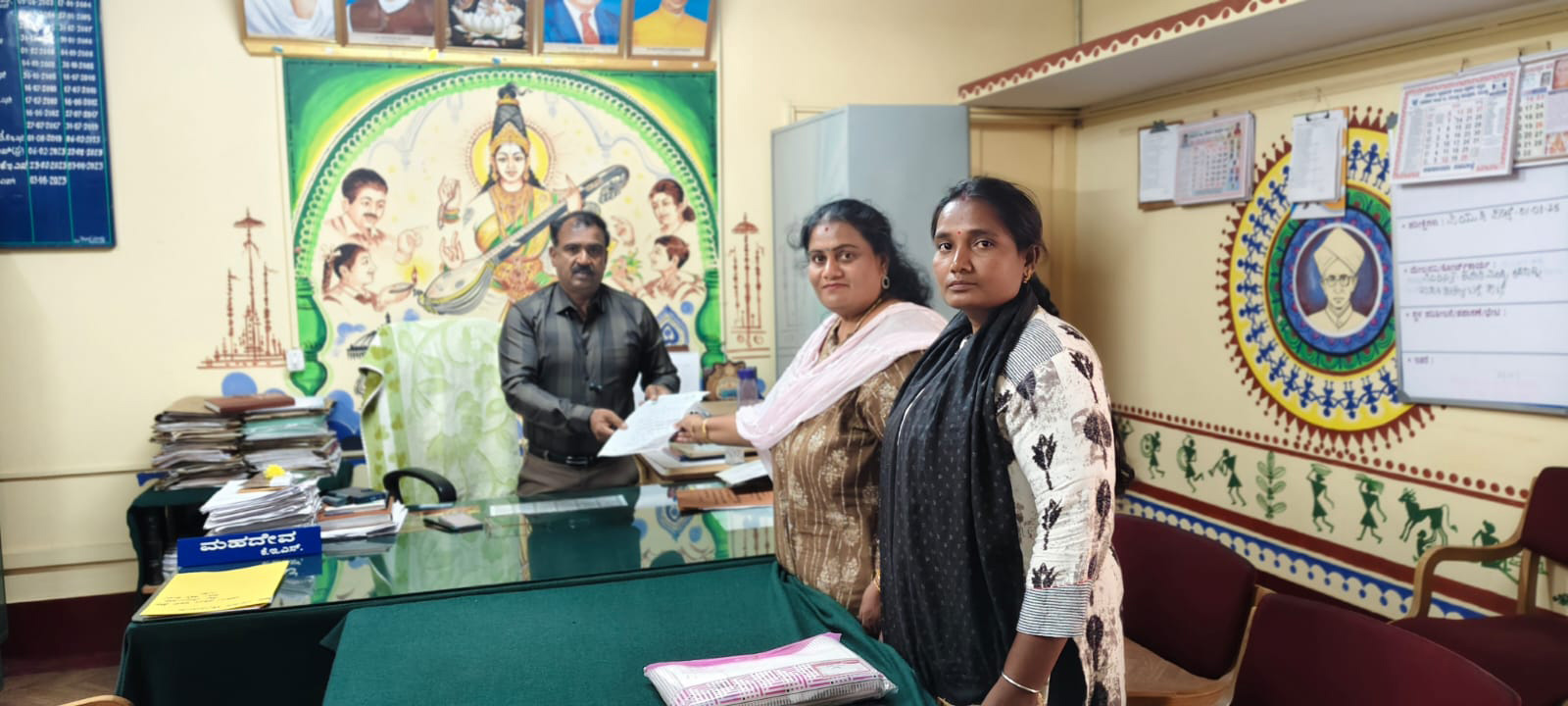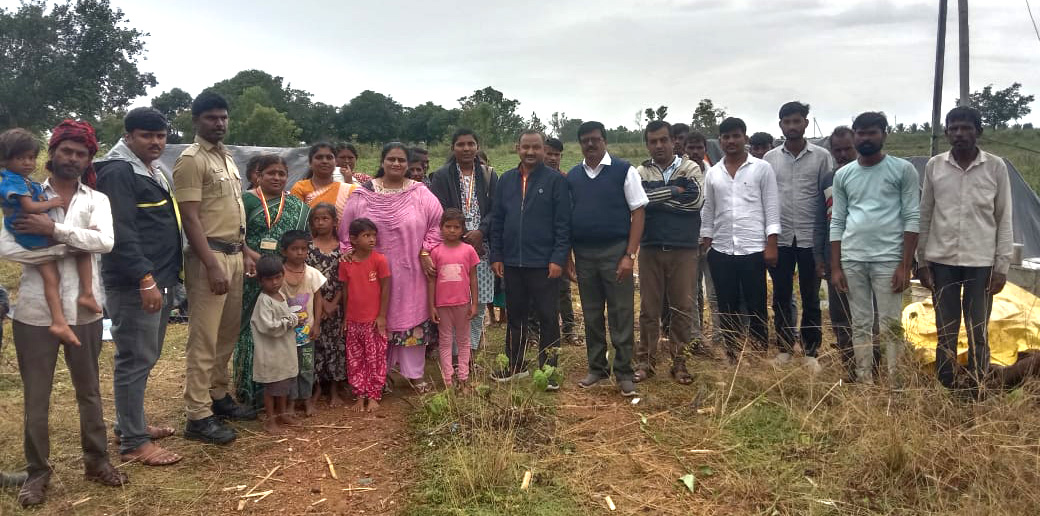Officials from the multiple state departments, ASHA workers, Anganwadi Karyakartas (community health workers) and Self Help Group Leaders, with the community members and children at Thumbakere village in Mandya, Karnataka.
On July 27, in Thumbakere village, Mandya district of Karnataka, Rani Chandrashekar convened a Shikshana Chavadi (a community-led dialogue focussed on education) bringing together school staff and community members at the local school to discuss challenges in accessing quality education. This session was part of the broader Shikshagraha movement, unfolding with 344 such Chavadis engaging 11,170 participants across 150 villages in two districts in the region.
As the founder of V-Help Rural and Urban Development and one of the movement’s committed women leaders, Rani Chandrashekar brings years of grassroots experience working with the communities. Rani’s work in Mandya began through Shikshagraha’s on ground partnerships across Karnataka state. She opened the Chavadi by highlighting the importance of collective ownership by communities and the school team in strengthening local schools. Platforms like the Chavadi, she explained, empower communities to move beyond passive observation towards active engagement and problem-solving.
This intentional framing set the stage for about 40 participants (both school staff and community members) to think constructively about solutions rather than just discussing challenges. “Would a reading space help?”, “How can we organise a Parent–Teacher Meeting?”, “What can we do to address the school’s challenges?”—these were just a few of the questions raised and discussed.
The dialogue turned out to be thoughtful and action-oriented. And the impact was immediate: two children were enrolled in school on the spot. Energised by this success and maintaining the same spirit of active engagement, on her way home, Rani noticed a group of over 15 out-of-school children (OOSC) in a nearby field. She stopped to speak with the children and their families, listening to their concerns. Seasonal migration for agricultural work and lack of awareness of the importance of education emerged as key barriers. Rani immediately connected with the Labour Department that evening to address the situation.
The next day, officials from the Women and Child Development, Health, Labour, Education and Police Departments, along with local women leaders, visited the area. Women leaders and Self-Help Group (SHG) members facilitated focused and emphatic dialogue and consultations with the migrant families. As a result, 24 more children were enrolled across Anganwadi, primary and middle grades the following day. The children began attending classes, sitting with peers, and sharing mid-day meals—a small but meaningful step forward for the community.
What It Takes to Make Change Happen
This success is not without collective effort by diverse stakeholders united in their mission to improve public schools and make children future ready. Women leaders and SHG members conducting Shikshana Chavadis in Mandya work tirelessly, often going beyond their expected roles. They conduct surveys to identify all OOSC in the area, and door-to-door consultations with parents and students to understand their challenges and encourage enrolment. They mobilise Anganwadi and ASHA workers to ensure families receive necessary health and childcare support. They consistently liaison with key government departments for assessment of the different situations and ensure that necessary steps are undertaken.

Rani along with another SHG Leader and Mr. Mahadeva M, Block Education Department Officer, Mandya South Zone to initiate enrolment efforts in the region.
A Movement Rooted in Community Power
What began as a single conversation in Thumbakere village has revealed something profound: when communities are equipped with the right platforms and trusted to lead, they don’t just solve problems—they transform systems. Shikshana Chavadi wasn’t merely about enrolling children; it was about shifting the very dynamics, the norms, of how education challenges are approached and resolved.
With this collaborative model proving effective, the women leaders are now expanding their reach to identify and support more out-of-school children across neighboring areas, building a sustainable network for education equity. Women leadership is proving that sustainable transformation doesn’t require top-down mandates or expensive programmes—it requires recognising and amplifying the leadership that already exists within communities.
Want to hear more stories of community-led change in education? Follow us on Instagram, LinkedIn, and X to stay updated on how grassroots leaders are shaping a more equitable future—one school, one child, one conversation at a time.
About the Authors
Basavaraj N Divatagi
Basavaraj Divatagi serves as the Associate Program Manager at Mantra4Change, a Bangalore-based non-profit dedicated to school improvement and education leadership development.
With over seven years of experience at Mantra, Basavaraj has played a pivotal role in leading the flagship ARISE (All-Round Improvement in School Education) program—spearheading the creation of model schools in the Anekal block, Bengaluru. In recognition of his outstanding contributions to the program, Basavaraj received the Best National Exemplar Award 2023 from the Tech Mahindra Foundation.
He holds an MSW in Community Development from Roshni Nilaya, Mangalore, and is passionate about wildlife photography, conservation, and travel.
Vinaya Kurtkoti
Vinaya is the Senior Lead – Communications at ShikshaLokam, where she brings her passion for narrative and community to amplify stories of education leadership and systemic change. A firm believer in the power of storytelling for social change, Vinaya has over seven years of experience as a journalist, having reported extensively on the environment, human rights, culture, and disability. She also serves as a Trustee of Niwant Andha Mukta Vikasalaya, an NGO dedicated to empowering visually impaired students.











